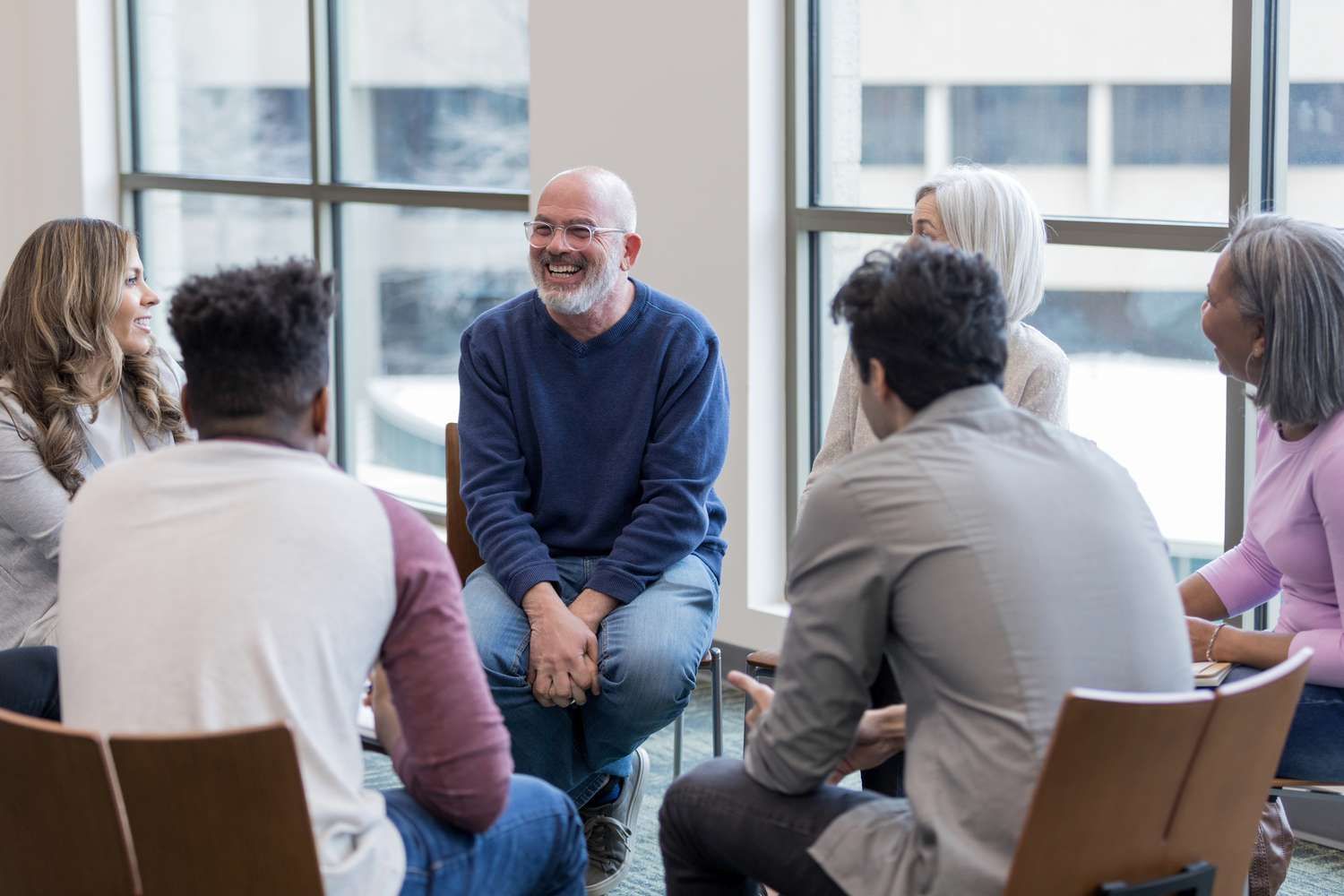Admissions Staff Are Standby 24/7
Group Therapy for Addiction & Mental Health
Article Contents
Group Counseling for Substance Use & Co-Occurring Disorders
While individual therapy is an important element of residential care, group therapy is of equal importance. Our combination of individual and group therapy represents the cornerstone of our addiction treatment program. Groups provide practical coping strategies, peer support, and accountability for your recovery. At the same time, group focus is tailored for each patient community to encourage participation and make topics relatable.
Once patients feel safe and supported, they tend to open up and gain valuable insights from treatment peers.
Group Therapy Topics for Healing & Recovery
Motivation Groups
It’s normal for motivation to ebb and flow during early recovery. Cravings, relationship problems, and mental health issues can all affect your motivation. Our motivation groups focus on keeping clients accountable without force or shame. Instead, you’ll tune into your core values and focus on staying committed to your goals.
Relapse Prevention
Recognizing relapse triggers is essential for a successful recovery. These groups will focus on improving self-awareness and recognizing potential warning signs. Clients are encouraged to examine their own recovery strengths and weaknesses. They are also encouraged to identify healthy coping skills that they can use during and after treatment.

Art Therapy
Creative expression can help you release subconscious feelings and needs. Sometimes, it’s easier to draw it out than talk it out. Our art groups offer the unique opportunity to paint, collage, draw, and use other forms of artistic expression.
Holistic Activities
Holistic groups prioritize the mind-body connection and help clients address specific barriers impacting their wellness. These groups may include meditation, relaxation strategies, acupuncture, equine, physical activity, dance, and other forms of holistic support.
Life Skills Education
Do you sometimes feel like you can’t cope with the challenges of the real world? You’re not alone. Our life skills groups focus on important topics like finding a job, cooking, budgeting, keeping a routine, and maintaining healthy relationships. Clients are encouraged to discuss and problem-solve obstacles impacting them in the real world.
Music Therapy
Music can be cathartic, and it often represents a healing component for many of our clients. Our music groups focus on songwriting, playing instruments, and processing themes in music as a way to promote creative expression.
Nutrition Education
Nutrition is an essential component of your physical wellness, and eating a well-balanced diet can also boost your mental health. Our nutrition groups help with meal planning, cooking, and other nutritional considerations to ensure you stay on track.
Psychotherapy Groups
We offer evidence-based dialectical behavior therapy (DBT), cognitive-behavioral therapy (CBT), and moral reconation therapy (MRT) groups for our clients. These didactic groups introduce concepts rooted in essential concepts like emotional regulation, changing negative thoughts, and building positive self-esteem.
Didactic Groups
Didactic groups focus on problem-solving and healthy coping. These groups tend to include psychoeducation- you will learn more about the process of addiction and how it affects your brain and emotional well-being. Didactic groups often build upon skills learned in individual therapy.
Process Groups
Process groups are unstructured groups intended to deepen insight and strengthen peer connection. Patients are led by therapists specifically trained. Patients are encouraged to address whatever is on their minds and “use the group” as a soundboard for change and growth. Sometimes disagreements emerge, offering useful practice for setting boundaries and implementing healthy social skills.
Benefits of Group Support
Group therapy is a critical treatment element for a variety of reasons. It fosters a sense of belonging, decreases isolation, and offers prospects for self-discovery and personal growth
Relate to Peers: Group therapy helps patients realize they’re not alone, reducing shame and isolation.
Support & Accountability: Peers provide encouragement and hold each other accountable.
Life Skill Building: Therapists often use cognitive-behavioral, dialectical, or motivational techniques to teach coping strategies.
Perspective: Hearing others’ stories and progress can offer insight and inspiration.
Safe Space: Group is confidential, nonjudgmental space to practice emotional expression, communication, and advice seeking.
Dual Diagnosis Groups: Tailored for patients with serious mental health problems and substance use disorders.
12-Step Introduction: For some, group therapy is a bridge for 12-step support when returning to their local community.





